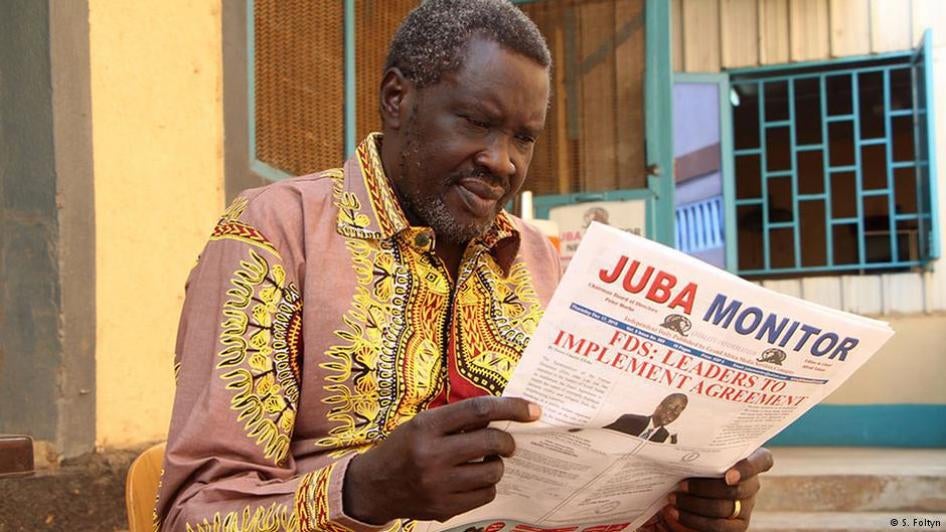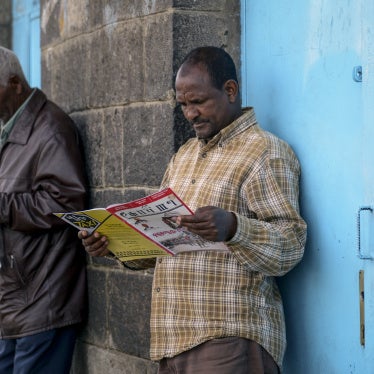On July 16, South Sudanese national security agents arrested Alfred Taban, editor in chief of the Juba Monitor, for two editorials calling for removal of President Salva Kiir and First Vice President Riek Machar, respectively, in the wake of renewed fighting around Juba.
The July 7 fighting began much as it did in December 2013, between forces loyal to the political rivals. It escalated into a four-day battle. Hundreds were killed and soldiers committed serious abuses, attacking civilians, raping women, and looting – including food for 220,000 people in a World Food Program warehouse.
Taban did not mince words, saying the two leaders had “completely failed” to implement the terms of the August 2015 peace agreement. “Instead of Juba being demilitarized, it was completely militarized,” he wrote.
In today’s South Sudan, voicing any critical opinion is treated as a crime, a bitter irony in a country where actual crimes desperately need justice. Human Rights Watch and other groups have documented a string of attacks on the media, including killings, harassment, arbitrary detentions, and closure of newspapers. Nhial Bol, editor of the Citizen daily and one of the country’s most outspoken pundits, gave up journalism altogether. At least two journalists are in detention, one for over two years without charge.
On July 22, authorities transferred Taban into police custody and charged him with publishing false information and undermining the president, and denied him bail. He suffers from medical conditions and has already spent a night in a hospital.
Meanwhile, Kiir has dismissed Machar, whose whereabouts remain unknown, and replaced him with another politician, Taban Deng Gai, sparking huge controversy and deepening cynicism about the peace agreement. The United Nations is once again debating whether to impose an arms embargo, which could make it harder for cash-strapped forces on both sides to rearm and perpetuate their abusive tactics.
At this precipitous moment, the Taban case gains even more urgency and symbolic importance. He devoted much of his career, as editor in chief of the Khartoum Monitor, to speaking truth to power about injustices, especially against southerners during the long civil war. South Sudan’s people have never been in such need of his voice. That its current leaders, employing a national security apparatus that eerily resembles the one in Sudan, have thrown Taban in jail, speaks volumes about where this government is heading.








